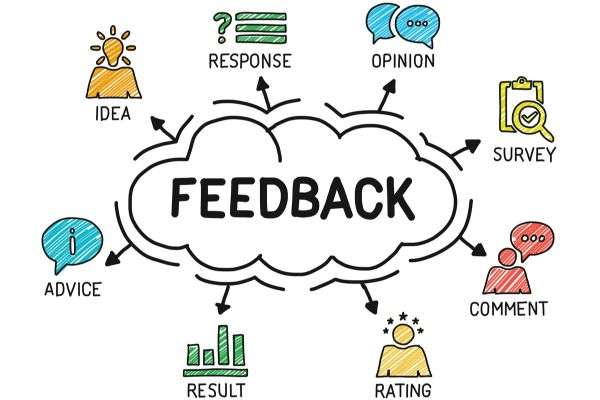Handling Feedback on Your University Assignments: A Guide to Growth and Improvement

Posted by wovexon219
from the Education category at
06 May 2024 06:39:36 pm.
University assignments can be a valuable opportunity for growth and improvement. However, it can also be challenging to know how to effectively handle feedback, especially if it's critical or unexpected. In this blog, we'll explore strategies for approaching feedback on your assignments, understanding its importance, and using it to enhance your academic performance.

Feedback serves as a bridge between your current performance and your potential for improvement. It provides insights into your strengths and weaknesses, guiding you towards areas where you can enhance your understanding and skills. Whether it's praise for a job well done or constructive criticism pointing out areas for development, every piece of feedback offers valuable information that can help you grow as a student.
Navigating feedback on university assignments extends beyond traditional academic papers and essays, especially in specialized fields like nursing. For instance, assessments like NURS FPX 6016 Assessment 1, focusing on quality improvement initiative evaluation, require a nuanced understanding of healthcare practices and methodologies. Handling feedback in such assessments involves not only addressing academic rigor but also ensuring the practical applicability and effectiveness of proposed initiatives. Platforms like DoMyCourse offer tailored support for students grappling with the complexities of assessments
The Impact of Feedback on Academic Success
Feedback plays a crucial role in your academic journey, influencing your learning trajectory and overall success. By actively engaging with feedback, you can identify patterns in your performance, address recurring issues, and refine your approach to future assignments. Additionally, incorporating feedback into your academic practice demonstrates a commitment to continuous improvement, which is a key characteristic of successful students.
Strategies for Handling Feedback Effectively
- Approach Feedback with an Open Mind
- Take Time to Digest and Reflect
Effective feedback management is not limited to academic disciplines like nursing; it also extends to fields such as healthcare administration. For instance, assessments like MHA 5010 Assessment 1, focusing on current environmental analysis, require a comprehensive understanding of healthcare policies, market dynamics, and regulatory landscapes. Handling feedback in assessments like MHA 5010 Assessment 1 involves critically evaluating the strategic implications of environmental factors and refining analysis to inform organizational decision-making
- Seek Clarification if Needed
Leveraging Resources for Improvement
In addition to seeking feedback from instructors, there are other resources available to support your academic growth and development. Websites like DoMycourse offer specialized assistance tailored to students navigating challenging assignments and coursework. Whether you're seeking help with understanding course material or refining your writing skills, these resources can provide valuable support to complement the feedback you receive from your instructors.
In the realm of nursing education, assessments like NURS FPX 4000 Assessment 4, which focus on analyzing current healthcare problems or issues, play a crucial role in preparing students for the challenges they will face in their careers. These assessments require students to critically evaluate complex healthcare issues, propose evidence-based solutions, and communicate their findings effectively. Handling feedback on assignments By leveraging resources such as those available at Domycourse nursing students can enhance their analytical abilities, develop effective problem-solving strategies, and make meaningful contributions to the field of healthcare.
Conclusion
Handling feedback on your university assignments is an essential skill that can contribute to your academic success and personal growth. By approaching feedback with an open mind, reflecting on its implications, and leveraging available resources for improvement, you can use feedback as a catalyst for learning and development. Embrace feedback as an opportunity to refine your skills, deepen your understanding, and ultimately excel in your academic endeavors.
Tags: writing services
0 Comments



